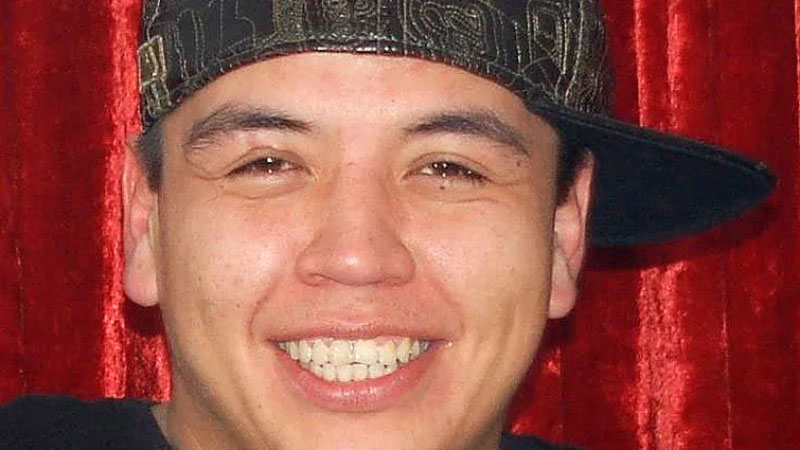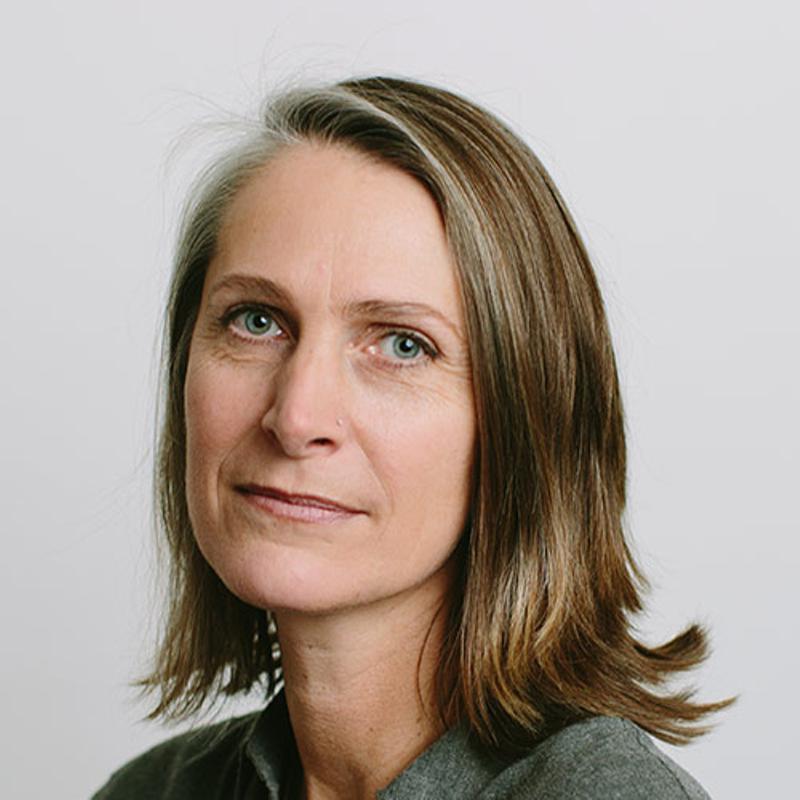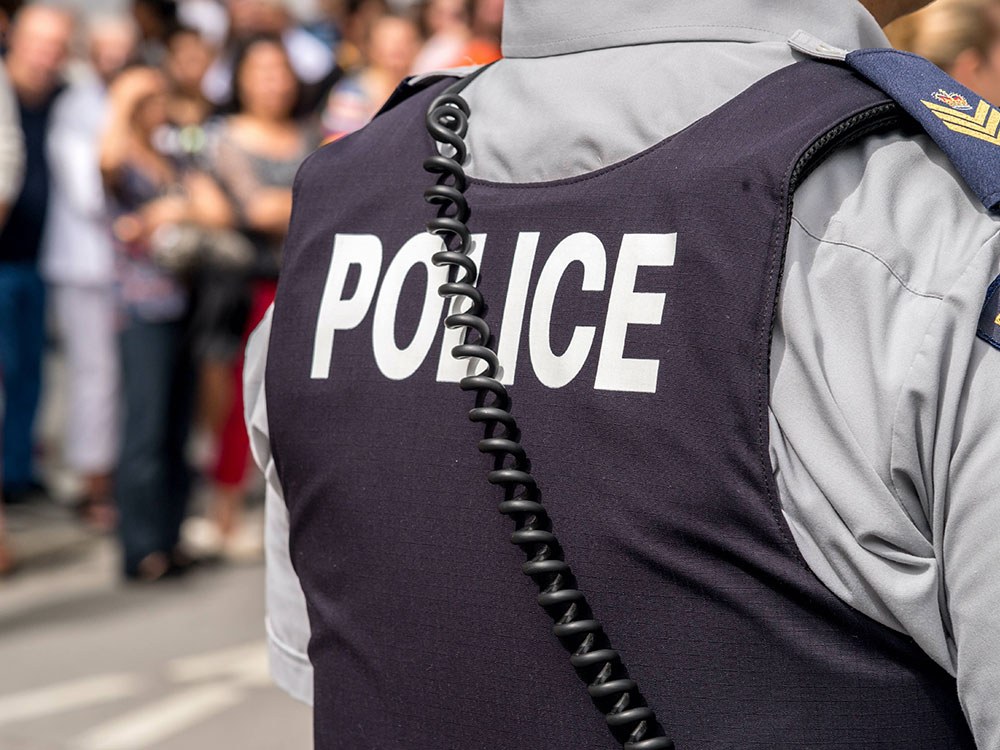When Wesley Mitchell thinks about his friend, Dale Culver, he remembers someone who sometimes struggled, always cared and was quick to light up a room with laughter.
Culver, who was Gitxsan and Wet’suwet’en, died July 18, 2017 after he was pepper sprayed while being taken into custody by police in Prince George. This week, five RCMP officers were charged in connection with his death. While those close to Culver, like Mitchell, welcomed the news, they questioned why the process took nearly six years.
“I prayed for justice and yesterday we found there was some justice. But it did take too long,” Mitchell said in an interview with The Tyee. “It was very hard for me to find out that he passed away, and the way that he passed away, the unnecessariness of that. He gave me love when I couldn’t love myself.”
B.C.’s Independent Investigations Office launched an investigation following Culver’s death. The police watchdog filed a report with Crown prosecutors in July 2019 suggesting charges be laid related to use of force and “allegations of obstruction of justice in relation to the deletion of video from a civilian phone.”
In May 2020, IIO announced an “expanded” report had also been shared with the prosecution service.
It would take almost another three years for the BC Prosecution Service to announce this week that it had charged Cst. Paul Ste-Marie and Cst. Jean Francois Monette with manslaughter on Wednesday.
On the same day, three additional RCMP officers, Cst. Arthur Dalman, Cst. Clarence Alexander MacDonald and Sgt. Bayani Eusebio Cruz, were charged with attempting to obstruct justice. All five are scheduled to appear in Prince George provincial court on March 14.
Reaction to the news was a mix of relief and frustration over the amount of time the process has taken. Culver’s family members, BC Civil Liberties Association and First Nations Leadership Council were among those who issued statements welcoming the development but also questioning why the process took so long.
Speaking to The Tyee after charges were announced, Grand Chief Stewart Phillip of the Union of BC Indian Chiefs called the delays “outrageous.”
“My initial comment was, ‘Hallelujah, about bloody well time that police officers are being held responsible for deaths in custody,’ but it’s outrageous that it’s taken this long to process this matter,” Phillip said.
“I think it represents a glimmer of hope, but only a glimmer, based on the track record of the intransigence on the part of the IIO and the RCMP itself,” he added. “They look at Black people, Indigenous people, people of colour as a disposable human commodity.”

A spokesperson for the BC Prosecution Service declined to comment on the length of time it took to reach a decision, noting that the case is before the court.
But the IIO addressed the delays in a statement issued a day after the arrests, calling its investigation into the incident “exceptionally complex and extraordinarily demanding.”
“To be blunt — I agree. The time it has taken to lay charges in this very serious matter is unacceptable,” IIO chief civilian director Ronald J. MacDonald said in the statement.
He added that the organization has struggled to find qualified investigators and has called for more funding to address the issues for several years.
“Passion for justice only gets one so far — everyone at the IIO is currently struggling with the intense demands of this work as we continue to operate with an entire team of Investigator positions vacant,” he said. “It is taking a toll on them personally, so much so that I am concerned about their well-being.
“Without changes, there can be no reasonable expectation that the IIO will be able to continue delivering fair and thorough investigations to the standard required in a timely fashion.”
A Globe and Mail investigation this week found that charges against police officers are an “extreme rarity” in B.C., with the IIO investigating 220 deaths over the past decade and recommending charges in 14 cases. Only one case went to trial and the officer, who was accused of manslaughter, was found not guilty, the Globe reported.
In December, the IIO recommended charges in the death of Jared Lowndes, a Wet’suwet’en man killed by RCMP in Campbell River. At the time, Phillip called for “serious reform” of police oversight.
He noted this week that, in the 16 months that followed Lowndes's death in July 2021, there were 74 reported in-custody deaths in B.C., according to a report by Pivot Legal Society.
In a statement released by BC Civil Liberties Association, Culver’s aunt, Virginia Pierre, said it’s painful every time the family sees police-involved deaths in the news.
“It happens way too much. Too many have died in the hands of the RCMP. The police are supposed to protect us, not kill us,” she said. “We cannot shake off the devastation until justice is done.”
BCCLA police director Meghan McDermott called it “unacceptable” to wait almost three years for the BC Prosecution Service to make a decision about charges.
“Such delays exacerbate the stress and pain that Dale’s loved ones are already experiencing and contributes more generally to public distrust of policing agencies and the oversight mechanisms purported to hold them accountable,” she said.
Four of the officers charged in Culver’s death remain on active duty while one officer, Macdonald, is on administrative leave for unrelated reasons, BC RCMP communications director Dawn Roberts said in an emailed statement.
She added that “their duty status is subject to continuous assessment” as the RCMP continues to seek additional information.
“We do have concerns regarding the nearly six-year timeline in this instance though, as it put undue stress on the man’s family, our members and their families, and the community which has been looking for clarity and answers on what occurred,” Roberts added.
Mitchell, who is Wet’suwet’en, said that he understands that police officers are put in difficult and potentially dangerous situations. But he also believes that stigma led to his friend’s death in downtown Prince George on that night almost six years ago.
“No matter who you are, you’ve got to be accountable for your actions, whether you’re a person of the law or whether you’re a person like [Culver] that was battling to get his family together,” he said. “I believe that people need to be accountable but there’s also that stigma of racism.
Mitchell asked that this article end with a simple line.
“All my relations.” ![]()
Read more: Rights + Justice

















Tyee Commenting Guidelines
Comments that violate guidelines risk being deleted, and violations may result in a temporary or permanent user ban. Maintain the spirit of good conversation to stay in the discussion.
*Please note The Tyee is not a forum for spreading misinformation about COVID-19, denying its existence or minimizing its risk to public health.
Do:
Do not: